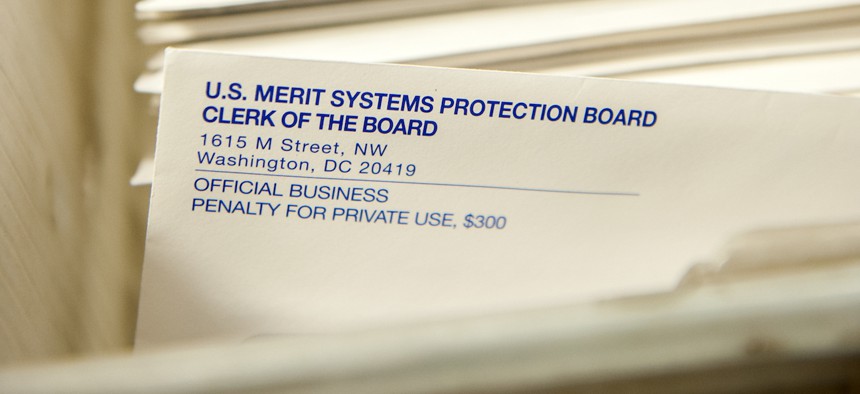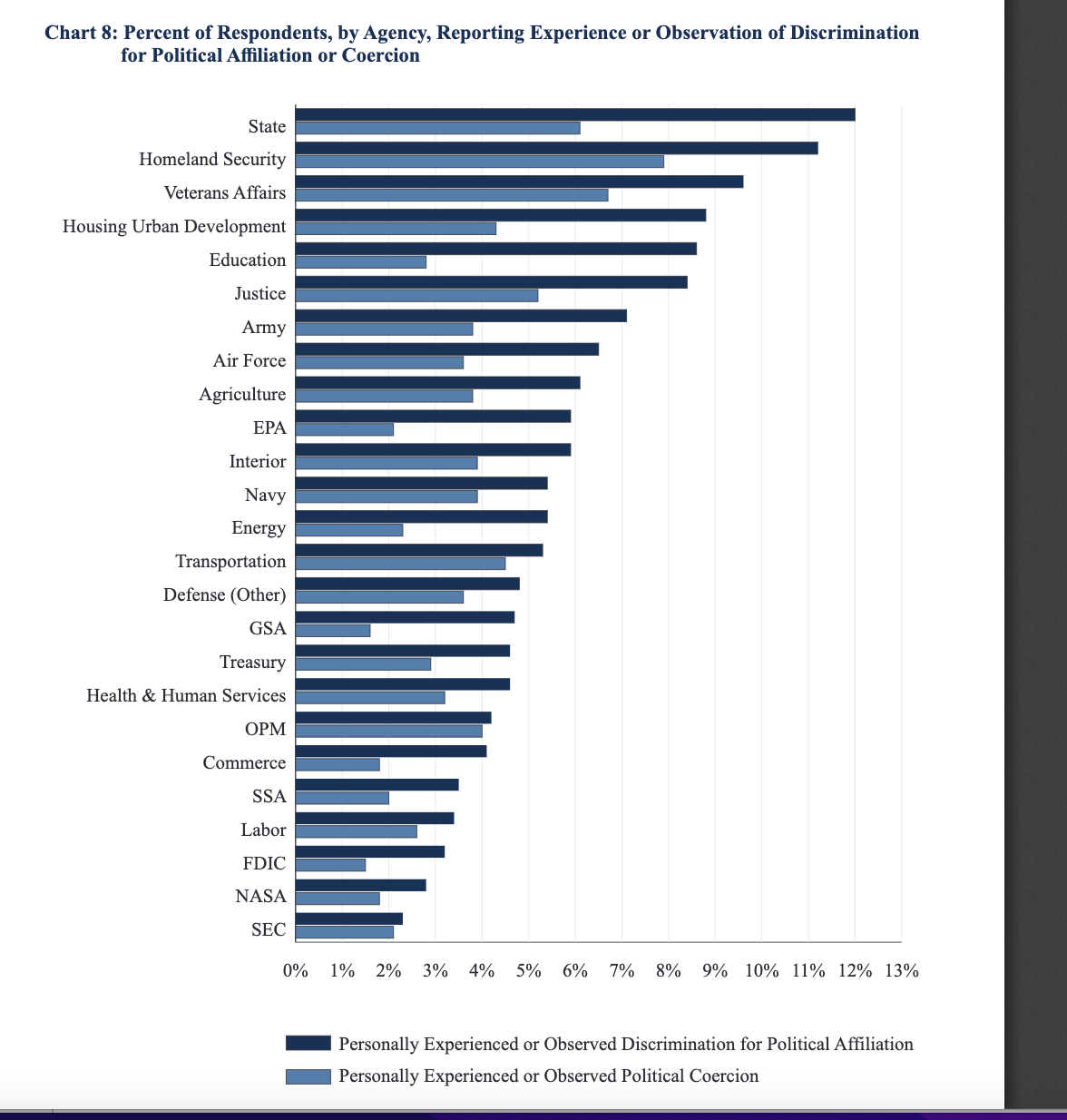
Form letters from the Merit Systems Protection Board in September 2013. MSBP said in a recent report that agency heads are responsible for preventing prohibited personnel practices. Katherine Frey/The Washington Post via Getty Image
Feds Reported ‘Notable Levels’ of Perceived Banned Personnel Practices in 2021
This “data is only a starting point, not the finishing line,” said the Merit Systems Protection Board.
Federal employees reported perceptions of prohibited personnel practices at a lower frequency in 2021 than years prior, but there were still “notable levels,” according to a recent report.
The Merit Systems Protection Board, an independent quasi-judicial agency, has conducted surveys in 2010, 2016 and 2021 of how federal employees view their workplace, including whether any of the 14 prohibited personnel practices (PPPs) have happened. A recent report compares and contrasts these results.
“This is employee perception data—we cannot use it to state what actually happened,” said MSPB’s newsletter published earlier this month. “However, as the Supreme Court has stated, ‘it is not only important that the government and its employees in fact avoid practicing political justice, but it is also critical that they appear to the public to be avoiding it, if confidence in the system of representative government is not to be eroded to a disastrous extent.’”
Overall, employee perceptions of PPPs went from 34% in 2010; to 46% in 2016; to 29% in 2021, “however, employees still reported experiencing and observing PPPs at notable levels,” said the report.
Across all three surveys, a PPP that respondents said was the most prevalent was “an attempt to define the scope or manner of a recruitment action, or the qualifications required, for the purpose of improving the chances of a particular person’s right to compete for employment.”
Next, employees’ perceptions of whistleblowing retaliation went from 8.1% in 2010; to 14.3% in 2016; to 6.5% in 2021; there was also a decrease from 2016 to 2021 in awareness of whistleblowing rights.
Lastly, in 2021 there were only two PPPs that were “notably higher than their 2010 levels,” which were political coercion perceptions and political discrimination perceptions.

This “data is only a starting point, not the finishing line,” said the report. MSPB recommends that federal agencies’ human capital officers should review their agency’s specific survey data as a springboard to reviewing distinct issues their agency faces.
MSBP also said that agency heads are responsible for preventing PPPs and should be involved with human capital officers’ efforts; supervisors, managers and executives need to lead by example to ensure there is a “healthy merit-based culture;” and the Office of Personnel Management should examine these results to inform its future activities.
The most recent survey was administered between January 2021 and April 2021, which received 33,138 responses (a 33% response rate) from 27 agencies. The report also includes the 2010 and 2016 surveys, which had a 58% and 39% response rate, respectively.







